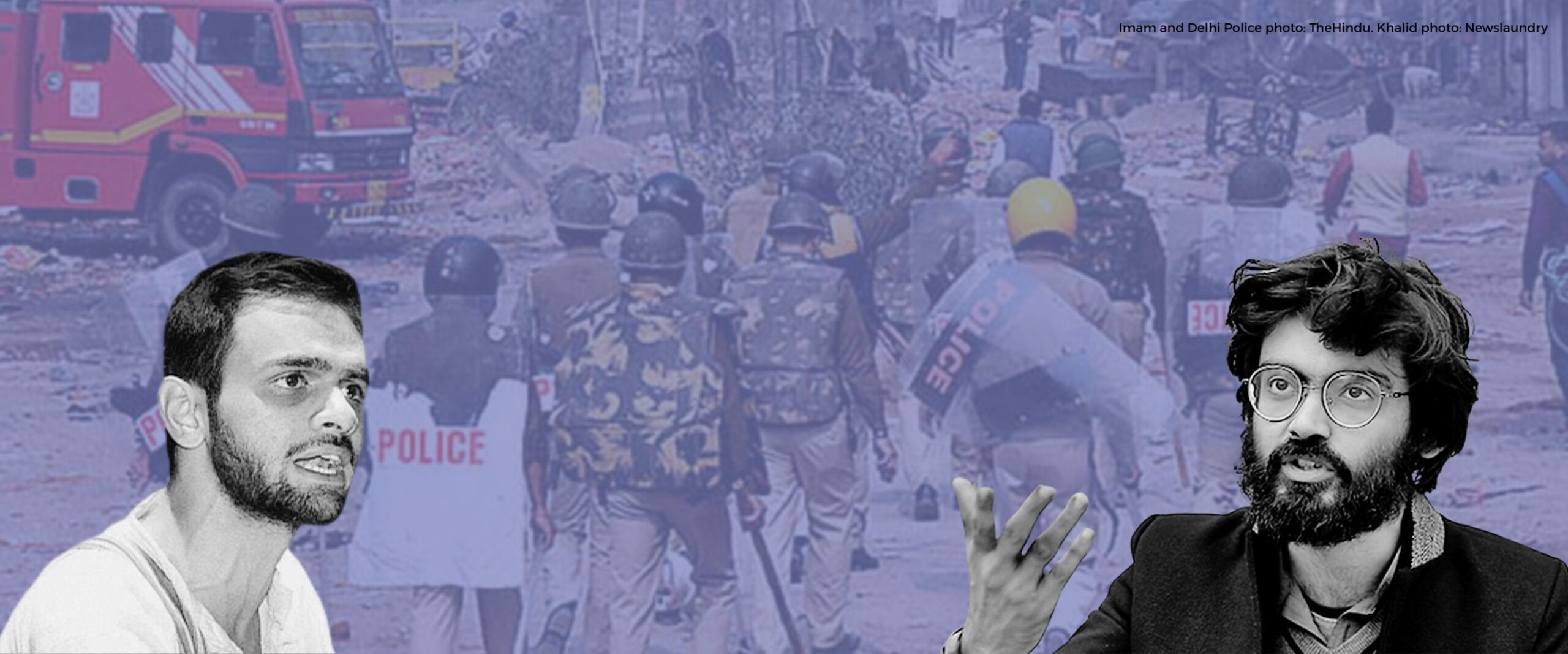Analysis
ASG Raju zeroes in on Umar Khalid’s role as prime conspirator of the 2020 Delhi riots
The prosecution pressed applicability of UAPA’s bar on bail and alleged that the accused were supported by a funding network

Today, the Bench of Justices Aravind Kumar and N.V. Anjaria continued hearing the Delhi Police’s objections to the bail pleas of Umar Khalid, Sharjeel Imam, Gulfisha Fatima, Shadab Ahmad and others in the 2020 Delhi riots conspiracy case.
Arguing for the Delhi Police, Additional Solicitor General S.V. Raju highlighted the serious nature of the case, pointing out that the riots had resulted in 53 deaths and 500-plus injuries. Building on yesterday’s arguments, he alleged coordinated efforts by the accused to change the regime.
Nature of offences attract statutory bar
Raju began by submitting that the material on record attracts the bar on bail under Section 43D(5) of the Unlawful Activities (Prevention) Act, 1967. As cognisance had been taken in each case and the orders remained unchallenged, he argued that the provision’s prima facie threshold stands satisfied. Referring to chargesheets filed in September and November 2020, Raju said the offences included Section 16(1)(a) UAPA, which carries no minimum punishment and can extend to death.
Citing the video footage of Imam’s speeches, Raju reiterated that the conspiracy was designed to obstruct essential supplies and was thus covered under the UAPA’s definition of threat to economic security.
Evidence of coordinated violence
ASG Raju then screened a video from the Chand Bagh protest site and alleged that protestors covered CCTV cameras and used sticks to cause the death of a police officer and an Intelligence Bureau official. He submitted that acid bottles were thrown from rooftops using a fixed sling. Raju then read from a protected witness statement to allege Ahmad and Fatima’s participation at a meeting on 23 February 2020, a day before the violence escalated.
Raju alleges support from funding network
ASG Raju then submitted that Tahir Hussain routed approximately Rs. 1.30 crores through shell companies, distributing money among organisers at protest sites. He said Shifa Ur Rehman collected funds through Alumni Association of Jamia Millia Islamia (AAJMI) and generated false bills, while money recovered from Haider’s room linked him to expenses at multiple protest sites. He added that the Enforcement Directorate is examining the money trail.
“Khalid’s past reflects pattern of instigation”
Focusing on Khalid’s role in the conspiracy, ASG Raju alleged that Imam had acted on Khalid’s instructions to form the Muslim Students of JNU WhatsApp group. Referring to a witness statement, he further submitted that Khalid instructed Imam to begin a chakka jam at Shaheen Bagh after a meeting on 8 December 2019. According to him, phone data placed Khalid in the area on 13 and 15 December when violence broke out at Jamia. Saiful Islam and Asif Tanha were also present, he alleged.
Citing chat records, ASG Raju argued that some students opposing violence while the accused advocated more confrontational methods.
Justice Kumar asked about the prosecution’s witness plan. Raju said arguments on charge must first be completed.
Senior Advocate Siddharth Dave clarified that he and the other petitioners would address the merits. Raju objected, stating that they had earlier declined to do so, but the Court allowed the petitioners time to advance their submissions.
The matter will be heard again on 24 November.